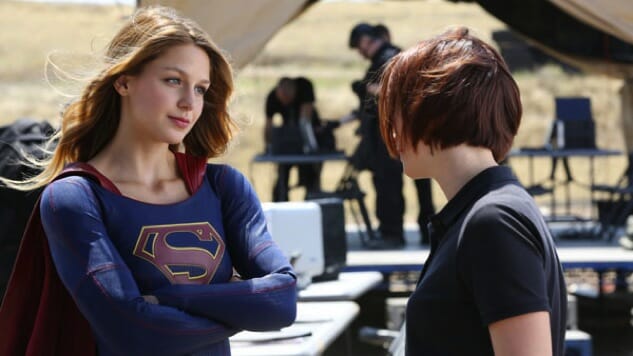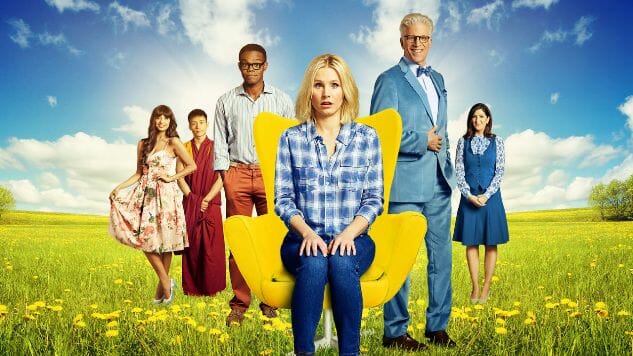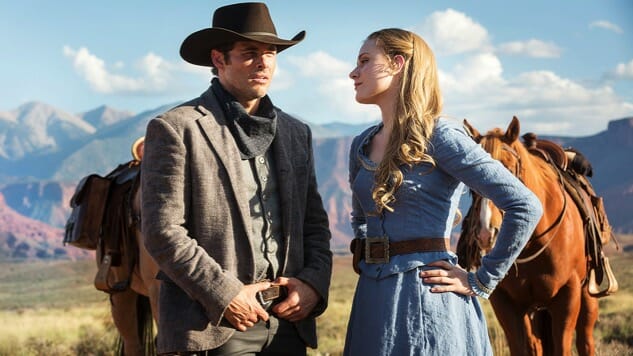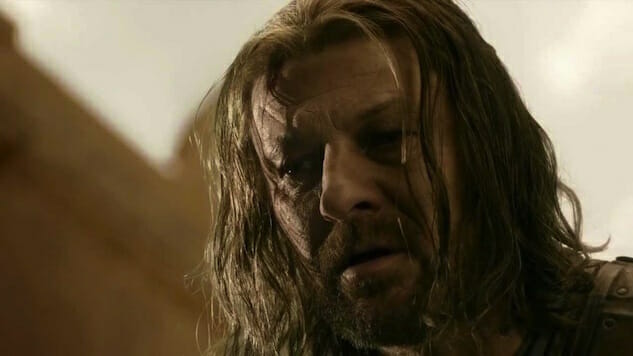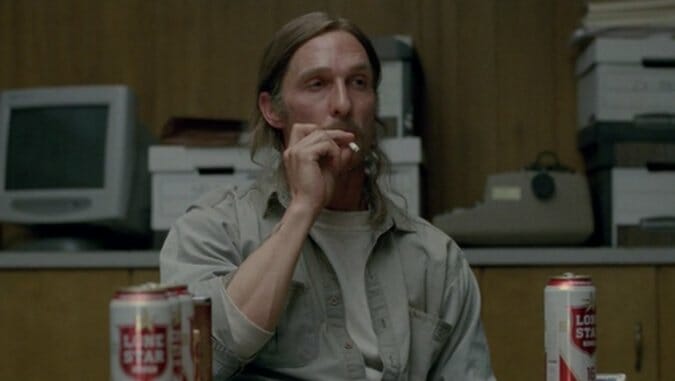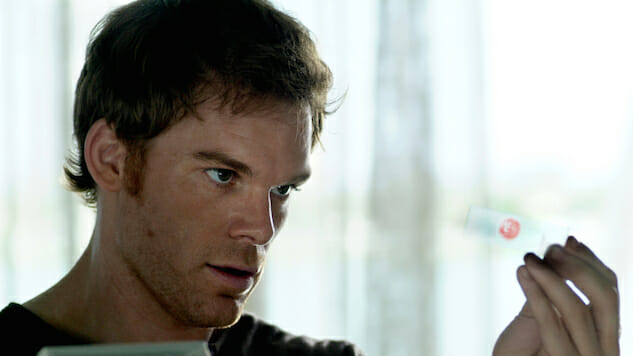10 of the Best TV Debut Seasons
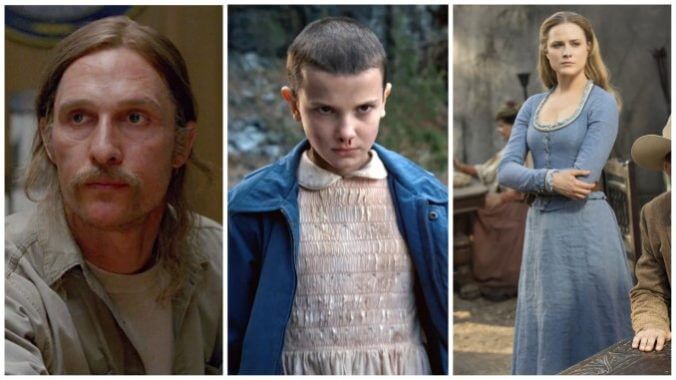
When approaching TV retrospectively, one grows accustomed to being told that we have to stick with a series for a while in order to really let it find its footing. You can’t mention the likes of Parks & Recreation, The Office, or Star Trek: The Next Generation without fans assuring you that their first seasons will be the worst part of your re-watch, and that things start to immediately improve in Season 2 if you’ll just be patient. The common nature of this process—the fact that TV series often need to struggle before reaching their full potential—makes it all the more impressive when one truly arrives fully formed and producing some of its best episodes right out of the gate. The best TV debut seasons thus often reflect the presence of a creator or architect who knew exactly what they wanted a show to be from its earliest moments, finding immediate popular success and critical acclaim.
The 10 shows in this list exemplify that kind of immediate quality—in many cases, these shows never quite recaptured the magic they displayed in the debut season, although some (such as Bob’s Burgers) have remained beloved throughout. Together, though, this group includes some of the best TV debut seasons of all time.
Killing Eve
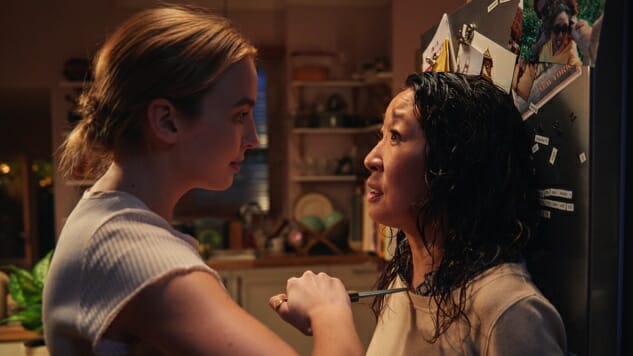
Killing Eve, AMC and BBC America’s cat-and-mouse spy series starring Sandra Oh and Jodie Comer, had an admittedly fraught life in its short, four-season run. Having just as many showrunners as seasons, Killing Eve’s subsequent outings struggled to live up to the masterful execution of the first season, which was helmed by Phoebe Waller-Bridge. The series follows Oh’s Eve, an MI5 agent bored with her run-of-the-mill life who gets caught up in a larger conspiracy surrounding an obsessive Russian assassin. Going by the codename Villanelle, Comer’s assassin is smart, witty, and completely unhinged, taunting Eve at every turn. The first outing is phenomenal, defined by a dark humor befitting Waller-Bridge’s works and fantastic performances by a chilling Comer and a powerful Oh. It’s a true shame that every season since featured more and more diminishing returns until the series ended with a whimper in its 2022 series finale. —Anna Govert
Bob’s Burgers
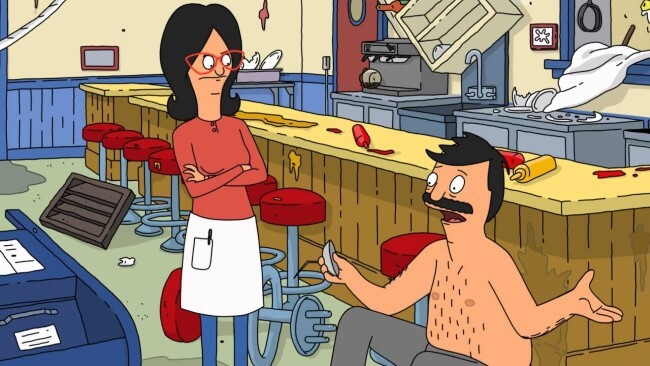
It’s relatively rare for animated series—especially ones that go on to become long-loved classics—to arrive “fully formed” as it were, in their debut seasons. This is true to some extent of Bob’s Burgers, but at the same time, it’s the idiosyncrasies of its first season that have gone on to make it arguably the show’s most beloved collection of episodes for longtime fans more than a decade later. The show was simply much more weird in this early era, with greater willingness to both push the boundaries of good taste and indulge in the more exaggerated silliness of the Belcher family. Some of these attributes, like Louise’s rampant sociopathy, probably couldn’t have held up unchecked over the course of another 13 seasons to come—you can understand why she ultimately needed to be toned down, or why Tina needed to be portrayed more as a functioning member of schoolyard society. But the joyful exuberance of these episodes and the barely-functional Belcher family make for many of the funniest misadventures that the characters would ever experience. Compared with most recent episodes, this era of Bob’s Burgers feels much more vibrant and lively. —Jim Vorel
Stranger Things
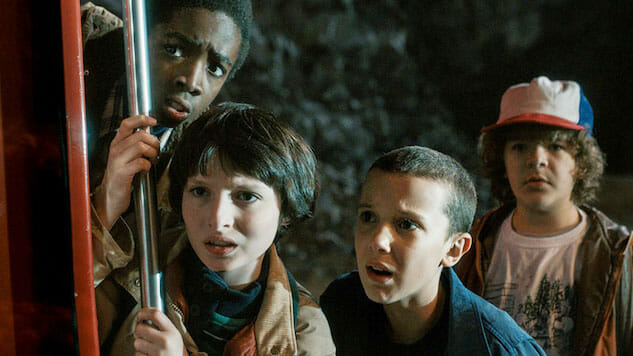
By the time Stranger Things comes to an end in 2025 (at the earliest), the series will have been on the air for 10 years with five seasons and less than 50 episodes to show for it. Each season of the hit Netflix original has attempted to outdo itself, upping the ante time and time again, to the point that, now, these kids (all of whom have grown up offscreen) are fighting inter-dimensional demons, sick serial killers, and twisted Russian communists all at the same time. But before all the flesh monsters and Russian prison escapes, Stranger Things’ first season remains an excellent ‘80s sci-fi series, grounded by a chilling horror and a beating heart underneath it all. The relationship between the kids in that first season is stellar, harkening to ‘80s classics and elevating its sci-fi mysteries through their shared connection alone as they hunt for their lost friend. Stranger Things may have strayed far off its original path in their efforts to become the biggest series on Netflix, but that first season will always be special. —Anna Govert
The Walking Dead
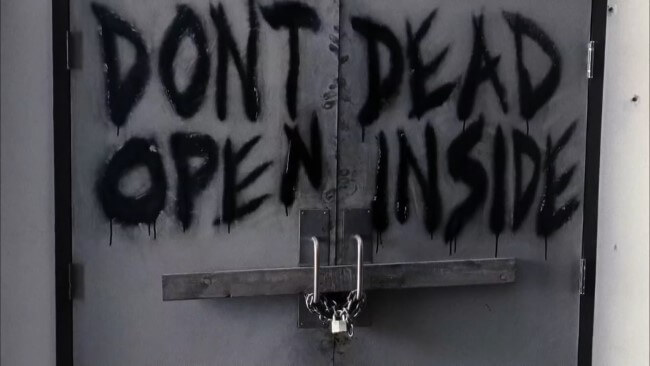
The Walking Dead is a show that experienced thrilling peaks and doldrum valleys repeatedly over the course of its interminable time on AMC, ultimately running for so long that even the TV geeks among us are likely to have forgotten just how fresh and vital it felt in its 2010 debut. Truly, the TV landscape hadn’t seen anything quite like the sober and harrowing depiction of the zombie apocalypse that director Frank Darabont brought to those early episodes—particularly the cinematic pilot, in which we (and the long-suffering Rick Grimes) are thrust into a nightmare of shambling corpses without the physical and mental tools needed to persevere in a rapidly depleted world. Things bogged down in the show’s second season during the momentum-draining encampment on Hershel’s farm, only to perk up again later, but here in Season 1, the sense of danger posed by the zombies is much more present and vital, as is the tension between Rick and former partner Shane, who seemingly has designs on stepping into Rick’s role of paterfamilias following his presumed death. There’s even a sense in these early episodes that we may be granted a window into the mystery behind the zombie outbreak itself, but this ultimately proves to be a heartbreaking misconception once the group reaches the Centers for Disease Control. Season 1 of The Walking Dead cements the inescapable doom of the setting, but also the conviction of the survivors to thrive as best they can in the face of a plague for which they know there will be no cure. —Jim Vorel
-

-

-

-

-

-

-

-

-

-

-

-

-

-

-

-

-

-

-

-

-

-

-

-

-

-

-

-

-

-

-

-

-

-

-

-

-

-

-

-


